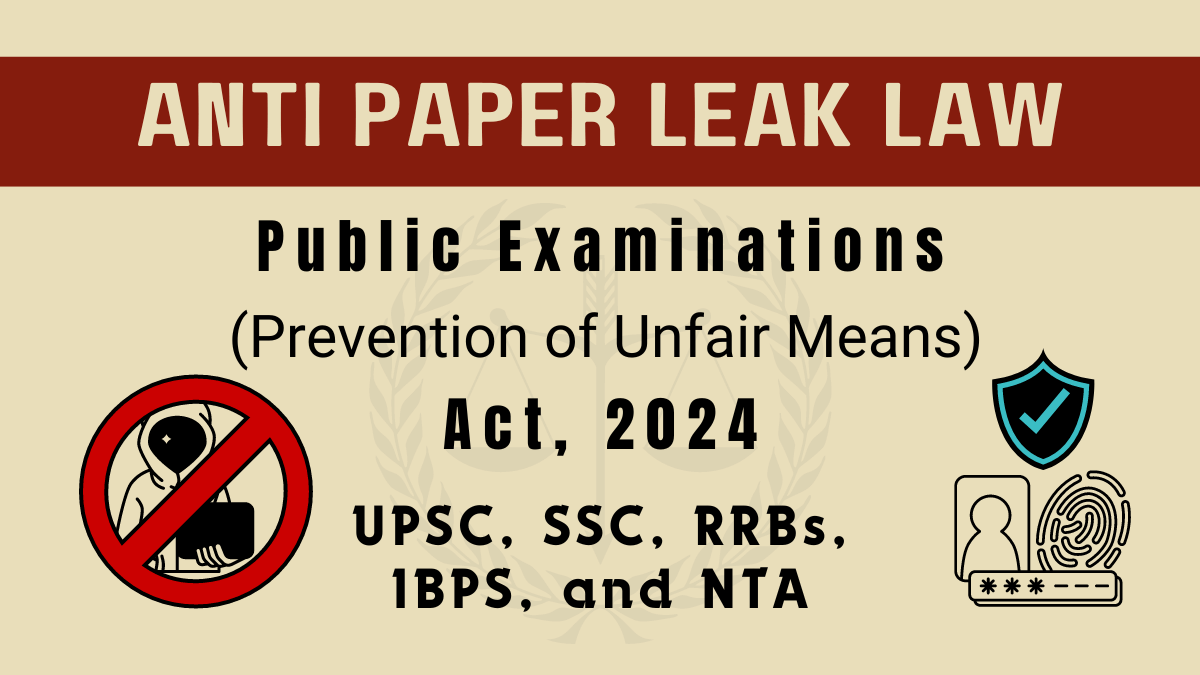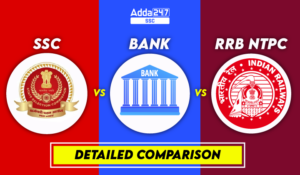The Anti Paper Leak Law officially known as the Public Examinations (Prevention of Unfair Means) Act, 2024 has been implemented from 21st June onwards. The central government has taken this step as a stringent measure against the unfair practices in various competitive examinations held across the country. The law has the provision for a maximum imprisonment of 10 years and a fine of up to Rs. 1 crore for the offenders.
Need for Anti Paper Leak Law
The recent controversies related to the National Eligibility-cum-Entrance Test or NEET conducted by the National Testing Agency (NTA) have escalated widespread discontent across the country. Besides, there have been other recruitment exams where candidates have been involved in cheating, buying or selling question papers before exams, impersonation, etc.
The following are some prominent issues which have resulted in the need for an Anti-Paper Leak Law:
- The increasing number of cases of paper leaks across various states impacting crores of applicants
- Delayed examination process, cancellation of exams, and increasing costs towards court cases and conducting the exams again
- Impact on credibility and fairness of central and state bodies conducting these exams
To restore the confidence of the general public in the authenticity of public exams and ensure that only deserving and hardworking youth clear these examinations, the Public Examinations (Prevention of Unfair Means) Act, 2024 has been implemented.
Chronology of the Anti Paper Leak Law
Here is how the ambitious Anti-Paper Leak Law came into being:
- Introduction of the Public Examinations (Prevention of Unfair Means) Bill, 2024 in Lok Sabha: 05th February
- Passed by the Lok Sabha: 06th February
- Passed by the Rajya Sabha: 09th February
- Assented to by the President of India: 25th February
- Date of Implementation: 21st June
Provisions of Anti Paper Leak Law
Here are some of the major provisions related to the Anti-Paper Leak Law or the Public Examinations (Prevention of Unfair Means) Act, 2024:
- Section 2 (k): Under this provision, the law lists 5 public exam authorities upon which it is applicable. These are: the Union Public Service Commission (UPSC), the Staff Selection Commission (SSC), the Railway Recruitment Boards (RRBs), the Institute of Banking Personnel Selection (IBPS), and the National Testing Agency (NTA)
- All other recruitments conducted by the Central Government’s Departments and Ministries will also come under the purview of this law.
- The offence is cognizable, non-bailable, and non-compoundable.
- There are various provisions regarding the offenders including the candidates, service provider, examination authority, etc.
- Punishment extends up to Rs. 1 crore and a jail term of up to 10 years.
- Any person involved in cheating or other unfair means will be subjected to at least 3 to 5 years of imprisonment along with a fine of up to Rs. 1 crore.
- Among the several offences, some of them are: tampering with question papers, OMR sheets, or computer networks/systems, leaking questions or question papers, organized gangs, illegal acts of selling question papers or impersonation for money, etc.




 SSC CHSL Vs. SSC CGL – What Changes in S...
SSC CHSL Vs. SSC CGL – What Changes in S...
 RRB ALP Preparation Strategy 2025, Tips ...
RRB ALP Preparation Strategy 2025, Tips ...
 SSC vs Bank Vs RRB NTPC Exams, Check Det...
SSC vs Bank Vs RRB NTPC Exams, Check Det...


